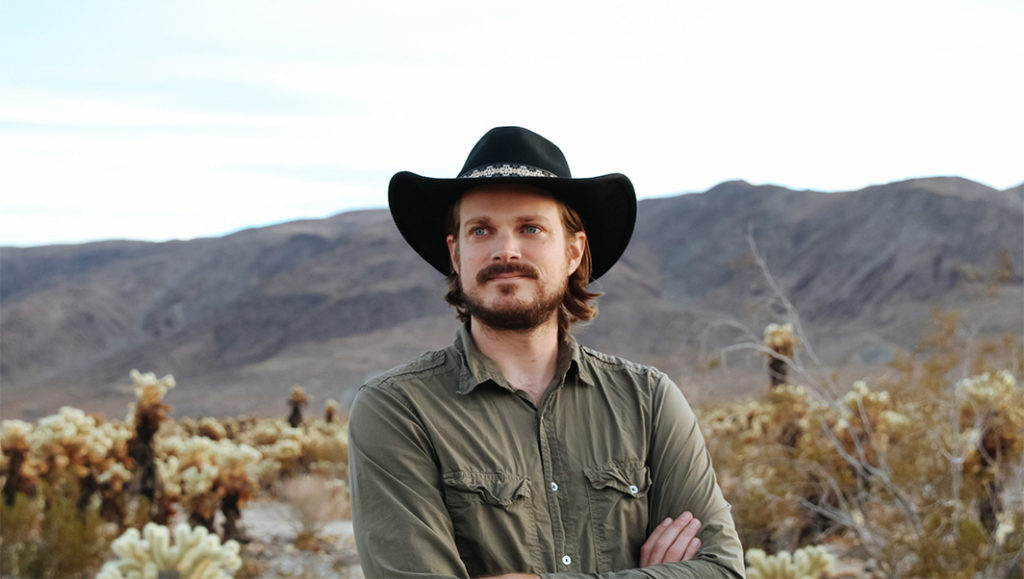Exclusive Interview: Marq Evans Talks Claydream, Collaborating with Will Vinton, and More

Marq Evans has emerged as one of the industry’s most exciting new voices. The award-winning independent filmmaker is best known for projects including The Glamour & The Squalor and Cow by Bear, and was named one of the Top 20 music documentaries of all time by American Songwriter.
His latest documentary, Claydream, tells the story of the meteoric rise and dramatic fall of the “Father of Claymation,” Will Vinton.
Pop Culturalist was lucky enough to speak with Marq about Claydream.
PC: How did you discover your passion for filmmaking and storytelling?
Marq: I came into filmmaking a little later. I didn’t grow up wanting to be a filmmaker or anything. I wanted to be a baseball player. After college, I got into sales and then sales management. I was really unhappy with what I was doing. At that point, I knew I wanted to be doing something creative.
My older stepbrother, Kevin Noland, was a filmmaker. In 2010, we went to Haiti after the big earthquake there and began making a film, which we’re actually still working on today. That ended up being my film school. It’s where I learned how to shoot, edit, and tell stories. It’s where I got the filmmaking bug.
PC: Who or what has had the biggest influence on your career?
Marq: My brother Kevin has been the biggest influence on my career in that I wouldn’t be doing this if it weren’t for him. He moved to LA after college and started from the bottom—sweeping floors and getting coffee. He made a film in 2006 called Americano with Josh Jackson and Dennis Hopper that opened up a lot of doors for him, and so when we teamed up to shoot our documentary in Haiti I just learned a ton. He’s still someone that has a big effect on the work I make.
PC: You’ve got a new project out called Claydream, and Will was a little bit hesitant about filming a documentary. Can you tell us a bit about that journey? What ultimately made him change his mind?
Marq: Will definitely made me work a bit before he finally agreed to the documentary. I think he just wanted to make sure I was for real and that I was actually going to do it and do it well. We spent about six months talking about my ideas before he finally agreed. By that point, I think he trusted me and my ability to tell this film. I didn’t realize until later that he was sick through all of that process, and I know he must have been thinking about his legacy a lot. So I think he probably wanted the documentary to be made, but he just wanted to make sure I was the right person to do it.
PC: Trust is such a big component of documentary filmmaking. How did you build that with Will and all the subjects within the film?
Marq: Building trust with Will was key in getting his approval and making him comfortable throughout the process. We spent a lot of time just talking ideas and hanging out to the point where he thought if I’m still hanging around I must be pretty serious about the story. I think he saw some of himself in me probably, at least in relation to how I wouldn’t give up on it. I always tell subjects that I’m interviewing—whether it’s the main subject or someone I’m interviewing about the subject/story—that if there is something they say that they’re not comfortable with me using to just tell me and I won’t use it. I think that helps people feel comforted that they’re not going to come across in some way they’re not happy about.
PC: You did a bunch of interviews before and after Will’s unfortunate passing. How did that impact the direction of this project and the choices that you made?
Marq: It was definitely a big blow when Will passed away. I wasn’t expecting it because he was always so positive about everything and never talked about how sick he was. I took a month or two off from the project to just kind of get away from it and meditate on how to move forward. I always knew we’d continue on, but I just wasn’t sure what the best way forward would be, and at first, I didn’t even know if that was something that would be included in the film or not. After a month or two, I met up with his family to make sure I still had their full support with the film, and they couldn’t have been more supportive. That was true of them all along the way. Will and his family were incredibly supportive and open to everything. The film couldn’t have been made without them.
PC: What do you hope audiences take away after they see the film?
Marq: I think depending on the person there could be a lot of different takeaways from the film, and I don’t ever try to edit in a way that will dictate what I want someone to take away. It’s up to the viewer to decide. For me, it’s an inspiring tale. Sure, Will made some mistakes and lost what he built. But it’s amazing to me that he was an artist that started his company out of his basement and built what he built. We’d all be lucky to have the success Will had.
PC: What’s next for you?
Marq: I have several new projects in the works at different levels of development. I’m excited about a true-crime series based in 1980s Kodiak, Alaska, a baseball documentary, and a Dracula project that you’re just going to have to see to understand!
To keep up with Marq, follow him on Twitter and Instagram. Watch Claydream today!


Discussion about this post